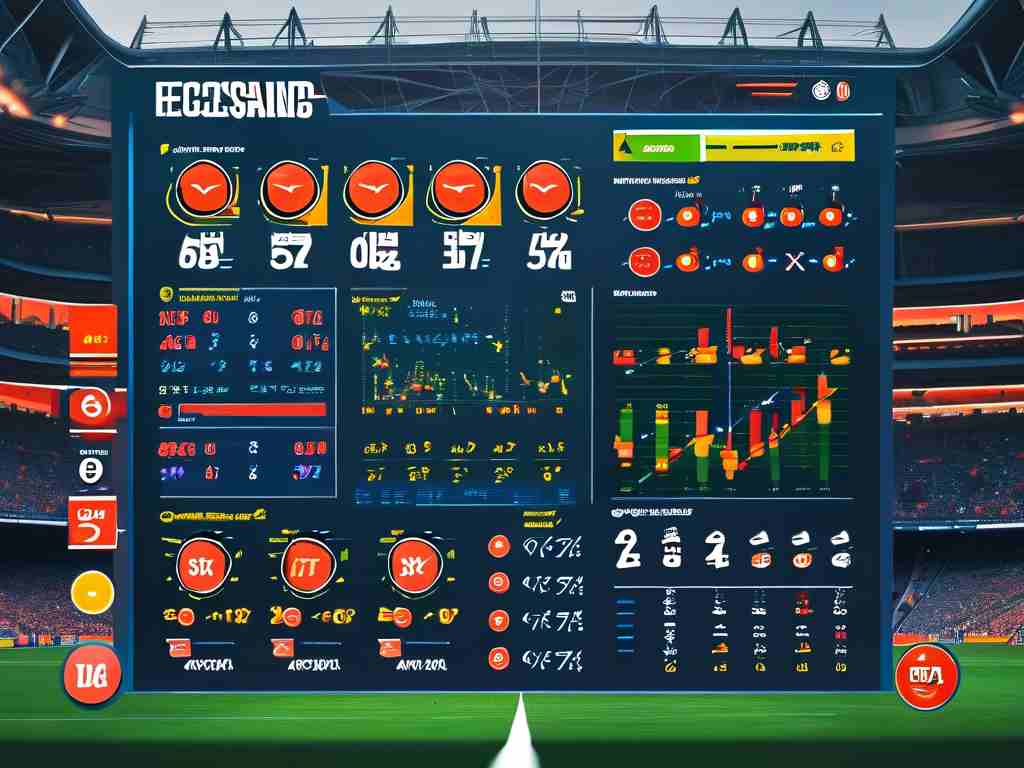Football betting enthusiasts and analytical gamblers increasingly rely on mathematical models to optimize their predictions. This article explores cutting-edge formulas and algorithms used in sports betting, focusing on practical applications while avoiding overly technical jargon.

Understanding Core Betting Principles
At the heart of football betting lies probability theory. The Kelly Criterion, for instance, remains a cornerstone for managing bankrolls. This formula calculates the optimal stake percentage based on perceived edge:
f = (bp - q) / b Where f is the fraction of capital to wager, b represents odds (decimal format), p the estimated win probability, and q the loss probability (1 - p). Seasoned bettors often modify this formula to mitigate risks, such as using half-Kelly strategies.
Poisson Distribution for Score Prediction
Widely adopted for low-scoring sports like football, the Poisson model estimates goal probabilities using historical team performance. By inputting a team's average goals scored/conceded, bettors can simulate match outcomes. For example:
P(k) = (λ^k * e^-λ) / k! Here, λ denotes the expected goals, while k represents specific goal counts. Advanced implementations now combine Poisson with real-time variables like player injuries or weather conditions.
Machine Learning Integration
Modern algorithms increasingly incorporate machine learning frameworks. Neural networks trained on decades of match data can detect subtle patterns missed by traditional models. A 2023 study revealed that hybrid models combining Elo ratings (traditionally used in chess) with reinforcement learning achieved 12% higher accuracy than standalone statistical approaches.
Value Betting and Arbitrage Opportunities
Identifying mispriced odds forms the basis of value betting. The formula:
Value = (Decimal Odds * Estimated Probability) - 1 A positive result indicates potential value. Arbitrage strategies take this further by exploiting odds discrepancies across bookmakers, though these opportunities now last mere minutes due to automated tracking systems.
Practical Implementation Challenges
While formulas provide theoretical advantages, real-world application requires adjustments. The "Fading Edge" phenomenon – where successful algorithms lose effectiveness as bookmakers adapt – necessitates continuous model refinement. Many professional bettors allocate 30% of their time to backtesting and parameter tuning.
Ethical and Regulatory Considerations
As algorithms grow more sophisticated, regulatory bodies have implemented stricter monitoring. The European Gaming Commission recently mandated disclosure of automated betting systems exceeding 60% accuracy rates. Responsible gambling advocates emphasize that no algorithm guarantees profits – disciplined money management remains paramount.
Future Trends in Betting Algorithms
Quantum computing experiments suggest potential breakthroughs in complex probability simulations. Early-stage research at Cambridge University demonstrated quantum models solving 10,000-scenario parlay bets in milliseconds. However, mainstream adoption likely remains years away due to hardware limitations.
In , while mathematical models enhance football betting precision, their effectiveness hinges on disciplined execution and adaptive strategies. Combining proven formulas like Kelly Criterion with emerging technologies creates a robust framework, but success ultimately depends on continuous learning and risk management.








